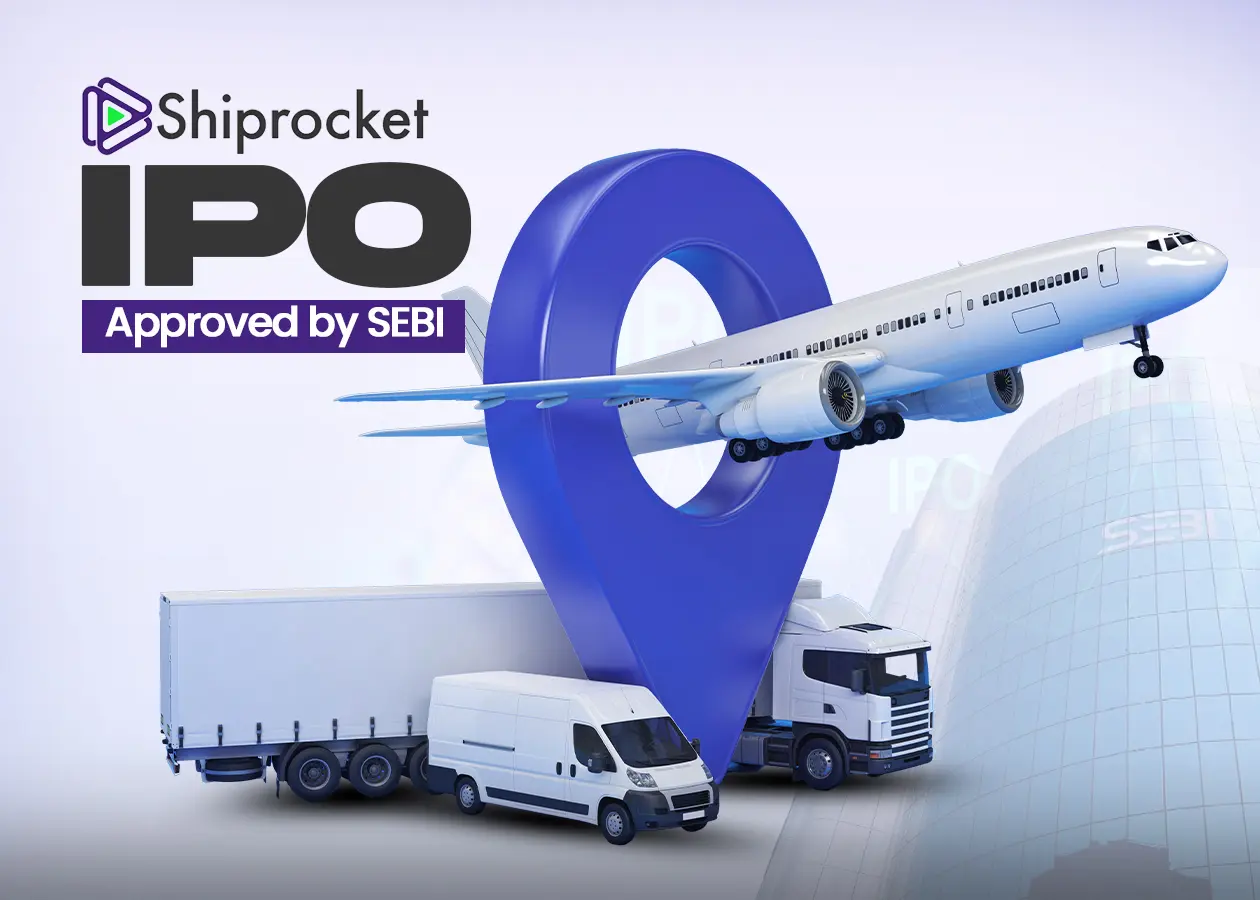Shiprocket IPO Approved by SEBI: Plans to Raise ₹2,500 Crore with Fresh Capital
Nov 8, 2025
The Company, Shiprocket, India’s leading e-commerce logistics and fulfillment platform, is set to make a significant splash in the public markets after receiving the green light from the Securities and Exchange Board of India (SEBI) for its Initial Public Offering (IPO). The market regulator issued its crucial observation letter on October 31, 2025, paving the way for the logistics unicorn to move forward with its ambitious plan to raise approximately ₹2,500 crore. This development marks a pivotal moment for Shiprocket, which confidentially pre-filed its Draft Red Herring Prospectus (DRHP) in May 2025.
Shiprocket began as a shipping-aggregator platform for SMEs and D2C sellers, working with multiple courier partners and enabling end-to-end logistics. Over time, it expanded into a fuller “e-commerce enablement stack,” offering warehousing/fulfillment, checkout and payments integrations, cross-border shipping and technology tools for online merchants. The company claims to serve hundreds of thousands of sellers, deliver to tens of millions of consumers annually, and cover thousands of pin-codes in India plus global shipping destinations. The founder-team (Saahil Goel, Gautam Kapoor, Vishesh Khurana, Akshay Gulati) and its investor base (Zomato, PayPal, Lightrock, Bertelsmann India Investments) add credibility to the growth story.
Revenue Streams and Unit Economics
Shiprocket's business model demonstrates compelling unit economics. The company monetizes through a combination of subscription fees, typically ranging from ₹24-36 per month for basic plans, and earns a margin on each order processed through its platform. Industry analysis suggests the company operates at approximately a 20% take rate, meaning for every rupee paid by merchants, roughly 80 paise goes to the actual courier partners while 20 paise is retained by Shiprocket.
For FY25, Shiprocket reported operating revenue of ₹1,632 crore, with emerging businesses now contributing around 20% to overall revenue. These emerging businesses include high-growth segments like quick commerce, cross-border shipping, and financial services for merchants—areas where the company sees significant expansion potential.
Shiprocket: Financial Turnaround
The timing of Shiprocket's IPO comes on the heels of a remarkable financial turnaround. For FY25, the company's operating revenue rose by 24% year-on-year, and it reported a positive EBITDA of ₹7 crore, marking a turnaround from a loss of ₹128 crore in the previous year, while narrowing its net loss to ₹74 crore. This represents an 88% reduction in net losses, demonstrating significant progress toward sustainable profitability.
Perhaps most impressively, Shiprocket achieved full-year positive cash EBITDA for the first time in FY25, as core business EBITDA more than doubled to ₹157 crore YourStory. This milestone is critical for investor confidence, especially in an environment where profitability has become paramount for tech companies seeking public market validation.
Shiprocket Proposed IPO Structure
Shiprocket has filed a confidential DRHP under Chapter IIA of the ICDR regulations with SEBI—meaning many detailed disclosures will be made public only after approval. The company is targeting an IPO size in the ₹2,000-2,500 crore band. For example, several sources cite fresh issue components between ₹1,000-1,200 crore, with the remainder likely being an Offer for Sale (OFS) by existing shareholders. Lead managers named include Axis Capital Ltd, Kotak Mahindra Capital Company Ltd, JM Financial Ltd and Bank of America Securities. The public listing is anticipated on both the Bombay Stock Exchange (BSE) and the National Stock Exchange of India (NSE) main boards.
The funds raised from the IPO are expected to be strategically deployed to enhance Shiprocket's technological infrastructure, expand its logistics network, and potentially pursue inorganic growth opportunities through acquisitions. As a key player in the e-commerce logistics sector, Shiprocket's ability to efficiently manage shipping, warehousing, and fulfillment services is crucial for thousands of direct-to-consumer (D2C) brands and small and medium-sized enterprises (SMEs) across India. The infusion of capital will likely bolster its competitive edge in a rapidly evolving and competitive market.
Competitive Market and potential risks
While Shiprocket is well-positioned in the growing Indian D2C + SME commerce logistics ecosystem, there are several risks that investors must evaluate:
The logistics and fulfillment sector is highly competitive, with incumbents (large 3PLs) and new-age players aggressively expanding. Rate pressure and margin compression are real.
Achieving profitable scale remains a challenge—as shown by the widening losses despite revenue growth. Investors will want clarity on unit economics (cost per shipment, warehouse utilisation, courier partner yields).
Dependence on D2C/SME seller growth cycles means sensitivity to consumer-spend downturns or slower e-commerce growth.
Execution risk: Building warehouses, fulfilment nodes, tech stack and executing acquisitions involves capital intensity and operational complexity.
The confidential DRHP route means that full detailed disclosures (valuation, risks, competitive metrics, margin profiles) are yet to be publicly visible—so there is some information asymmetry until the public RHP is released.
Conclusion
With SEBI approval secured, Shiprocket plans to file its updated draft red herring prospectus in the coming weeks, followed by price discovery and public subscription. The exact timing will depend on market conditions and investor sentiment, but the company is positioned to launch one of the more significant tech IPOs in India's logistics sector.
As India's ecommerce ecosystem continues its rapid evolution, Shiprocket's public market debut represents a milestone in the maturation of the country's tech-driven logistics infrastructure. Whether the company can maintain its growth trajectory while expanding into new verticals and geographies will determine if this IPO marks the beginning of a new chapter or the end of easy growth fueled by private capital.
For D2C brands and SMEs across India who rely on Shiprocket's platform, a successful IPO would validate the infrastructure they've built their businesses upon. For investors, it offers a unique opportunity to participate in India's digital commerce revolution through a pick-and-shovels play—a company providing essential infrastructure rather than directly competing for consumers.
Stay Connected, Stay Informed –
Don’t miss out on exclusive updates, market trends, and real-time investment opportunities. Be the first to know about the latest unlisted stocks, IPO announcements, and curated Fact Sheets, delivered straight to your WhatsApp.
